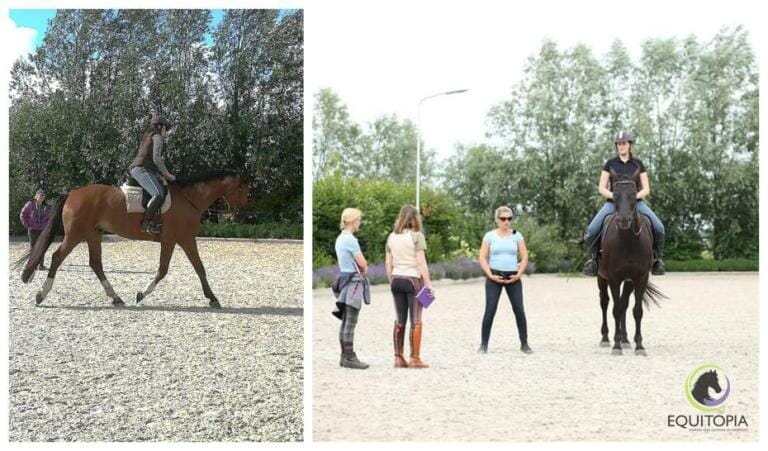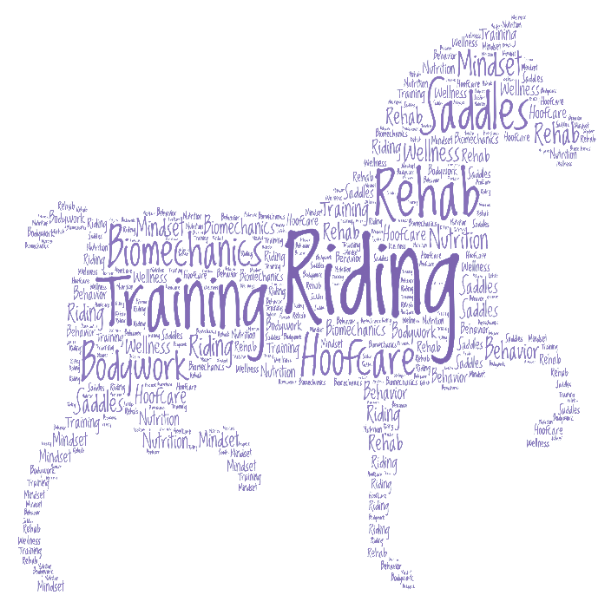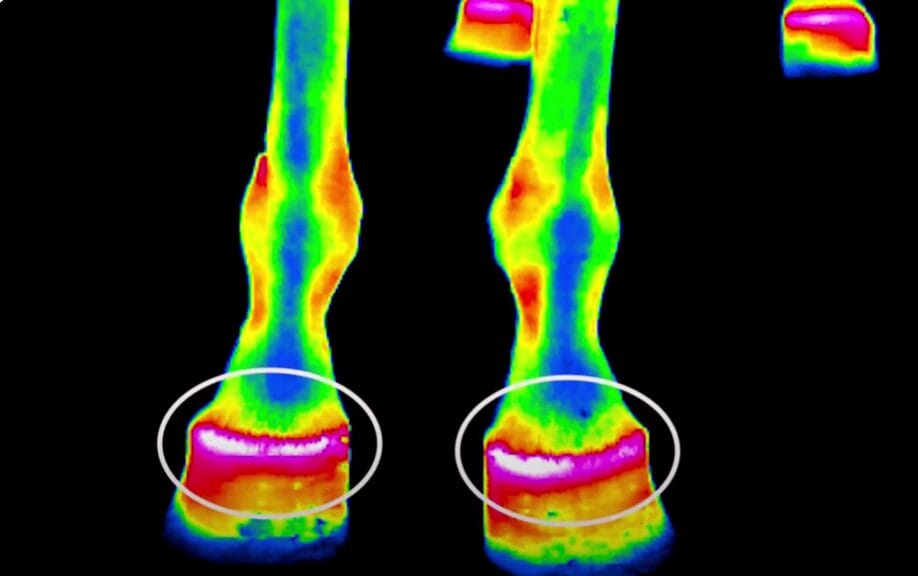
Hana Drahošová, from the Czech Republic is currently working as an IT Consultant, but hopes to become a professional saddle fitter in the near future. When she bought her own Czech warmblood mare Safira, in 2016, she realized that she needed to make a lot of decisions that she had never had to deal with with rented horses. She started to look for information abroad, because of the lack of reliable sources in the Czech Republic. She soon realized how much useful information was unavailable to many Czech horse-people, so she decided to set up her own website at: http://www.konecesky.cz/ (translation: HorsesInCzechLanguage ) where, with her translation team, she translates foreign videos and articles that she believes are worth sharing.
In this post, Hana writes about some important considerations when choosing a trainer.
HOW DO YOU RECOGNIZE A GOOD TRAINER?
Whenever I publish an article translation or educational video on my webpage a lot of my friends and even strangers ask me for advice. Usually, I end up giving them this great but extremely general advice: “Find a GOOD trainer”. This is usually followed by “What does that mean? Do you know a good trainer? Can you recommend anyone?” In those moments I always end up asking myself: “Well… what really makes a GOOD trainer?” In my opinion and from my personal experience, this is what a good trainer should be like:
1.HE/SHE HAS TO THINK
This might sound simple, but it’s far from it. Just to be clear by that I mean that the trainer must be able to listen to what you have to say and take it on board. It doesn’t mean he/she has to agree with you, but you should still get a logical explanation of why he/she thinks otherwise. If you don’t get an answer that makes sense, keep asking until you do.
2. HE/SHE SHOULD FOCUS ON THE HORSE AS WELL AS THE RIDER
If you have a trainer who gives you consistent advice on how you have to be harder on your horse, and ride him through all the issues, maybe it is time to change the trainer. A good trainer should consider the possible whys. Why is the horse doing what he is doing? What could be the reason your horse bucks, rears, shakes his head, gets behind the vertical or refuses to do a certain exercise? A good trainer should be able to tell the rider what could be the cause of such behaviours. A good trainer should raise his/her concerns either about the rider or the horse and suggest the best possible way to solve it. Those could be simple things, such as making an adjustment in the management of the horse, getting the vet/physio/farrier or the saddle fitter out. Or even take a few steps back and work on the basics.
3. HE/SHE SHOULD BE CONFIDENT
It takes a lot of confidence to be able to tell someone who pays you for riding lessons, to get off the horse and start with the groundwork, even if the rider wants to train flying changes. On the other hand, the trainer should be professional enough to be able to admit the limits of his/hers knowledge.
4. HE/SHE SHOULD UNDERSTAND EQUINE BIOMECHANICS
You can use different types of training methods for your horse, but there is one thing that is the same in horses all over the world, and that is the biomechanics. If your trainer can’t explain why and how he/she wants you to perform a specific movement with your horse, maybe he/she should get a book on that topic and start learning.

5. HE/SHE MUST UNDERSTAND HOW DIFFERENT TYPES OF RIDING AIDS WORK
If you often get advice from your trainer such as: ‘He is difficult to turn, maybe it is time for you to get a sharper bit’, or ‘He lifts his head too much, I will get you some draw reins’etc… If this is the case then it’s definitely time to try a different trainer. There is a saying in Czech Republic: “All the gear, no ideas” and I believe that it is true. If you can’t get your horse to do anything without a lot of force (or gadgets that do it for you), maybe it is time for you to take a step (or ten) back and work more on your basics.
6. HE/SHE HAS TO HAVE AN INDIVIDUAL APPROACH
Every rider is unique, as is every horse and this should be reflected in your trainers approach. What works for one horse/rider doesn’t always work for another.
7. HE/SHE SHOULD BE ATTENDING CPDs AND/OR ACTIVELY STUDY
If your trainer has his/her own trainer, it is definitely a good sign. If not, he/she should be at least actively searching for new information and training methods. Becoming a good rider and trainer is a lifelong process and it requires an endless appetite for knowledge.
8. HE/SHE SHOULD LET YOU FEEL
Your trainer should be able to explain in a simple manner what he/she wants from you and your horse, but he/she should be also able to let you feel whatever you accomplish with your horse. For most people it is much easier to remember the feeling you had during that one particular moment, rather than remembering the position your hands were in.
9. HE/SHE SHOULD BE POSITIVE
I don’t know about you, but positive reinforcement works on me. A good trainer should be able to let you know when you do it right. If you only hear criticism when you walk to the arena, you can easily get demotivated and so can your horse. Some praise goes a long way, even if your day wasn’t really your day.



